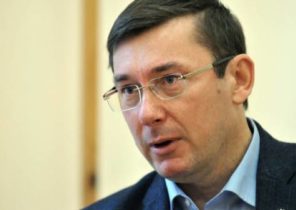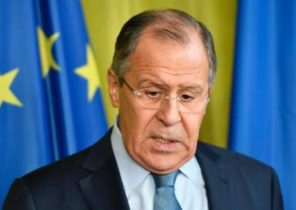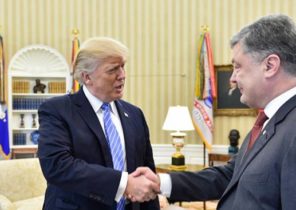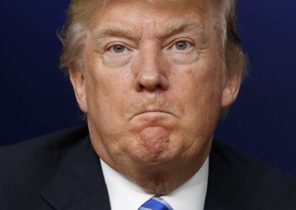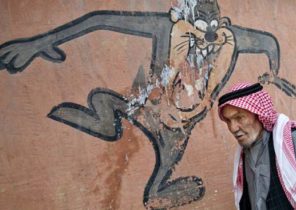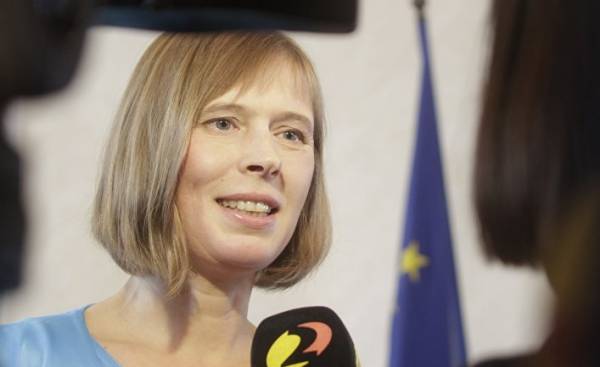
It is natural that relations with the East will play a big role when Tallinn will preside over the EU. Estonia is replaced by Malta, and the chair of the EU presidency passes from one state to another small state.
When Kirsty Kaljulaid (Kersti Kaljulaid) in the mid-1980s was 15, she never dreamed that once lead the then European community.
“If I was 15 again and someone would have told me that in 2017 we in Estonia are NATO forces, and we will be ready to preside in the EU, I would find it hard to believe in this dream. Nevertheless, now it is a reality,” says Kaljulaid when Agency TT with a group who came from Brussels, the European journalists meets her in the Palace Park at her residence in Tallinn.
Here, the 47-year-old Celluloid lives since last fall, when she became President of Estonia. Its role is mainly representative, however, does not prevent her to speak on the topic of some of the challenges that will face the government over the next six months.
“No one, perhaps, does not expect that a small country in Eastern Europe will be able to solve it, but in any case we are going to do everything in our power,” she says about the migration crisis, in which EU countries continue to be sharply disagree among themselves about what to look for in the future reception of refugees.
“I rely on the fact that such a democratic country like the UK, which respects liberal right person will be able to solve everything so that all interests are met and rights protected,” she said when it came to talks about the coming British exit from the EU.
In front of the presidential residence in the summer sun flies proudly white-black-blue flag next to the flags of the EU and NATO.
Estonia definitely has not forgotten the time when it was a Soviet Republic. Her opinion on Russia’s political leadership highly skeptical, and the decision to join NATO was made specifically in order to protect its independence from Moscow.
“People are asking, are we afraid, but why should we be afraid? The deterrent power of NATO, as practice shows, works one hundred percent. We are not afraid, but we are in a state of readiness,” — said the President Celluloid.
The President without hesitation calls Russia a country which does not allow other countries to determine their own path. Estonians are very wary of what is happening in the East.
“You never know. Indeed, in August, (Russian President Vladimir) Putin has a habit of always working when the rest of us, usually on vacation,” says Maple Aarts (Klen Jäärats), head of the European Department of the Estonian government office.
“In September, they will train to carry out the occupation during large-scale maneuvers “West”. But I guess it’s just a drill,” says Aarts with an evasive smile.
The EU’s relations with the East during the presidency of Estonia will be discussed at yet another summit with members of the so-called Eastern partnership in Brussels in November. In addition, the expected formal talks over Russia’s plans regarding the expansion of the gas pipeline “Nord stream” in Baltic sea.
Estonia also very skeptical.
“We are looking for ways to synchronize our grid with the Scandinavian networks. Because we would feel more confident if our power would depend on like-minded countries. Now we are connected to the Russian power — and Russia is unpredictable,” says the President Kersti Kaljulaid.
Estonia
Largest Estonia approximately corresponds to half of the Gotaland County, its population is 1.3 million inhabitants. About a third lives in the capital Tallinn.
After Estonia has long been under the yoke of foreign power, including German, Danish, Swedish and Russian rulers, the country in 1918 regained its independence from what was then Russia.
During the Second world war it again came under Russian control, which continued until the restoration of sovereignty after the collapse of the Soviet Union in 1991.
Since 2004 Estonia is member of EU and NATO, and since 2011 in the country in the course of the Euro.
Since October of 2016 President — Kirsty Kaljulaid (born in 1969). The Prime Minister of the country from November 2016 — jüri Ratas (Jüri Ratas was born in 1978).
The EU presidency
The main task of the presidency of the Council of Europe to conduct Ministerial meetings and negotiations with the European Parliament and the European Commission. All ordinary meetings, however, are held in Brussels under the chairmanship of the permanent President of the Council, which at the moment is former Prime Minister of Poland Donald Tusk.
The next time Sweden will chair the EU in 2023.
